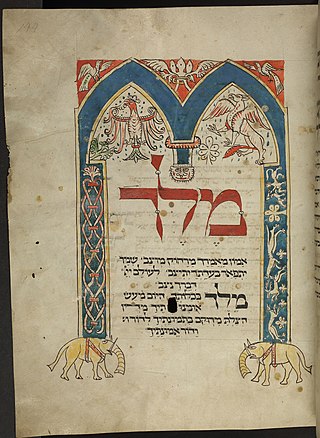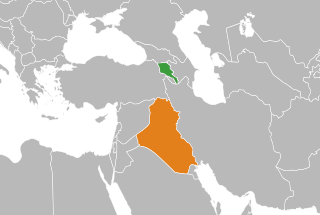Related Research Articles
May 7 is the 127th day of the year in the Gregorian calendar; 238 days remain until the end of the year.

Malik is the Semitic term translating to "king", recorded in East Semitic and Arabic, and as mlk in Northwest Semitic during the Late Bronze Age.
Petrosyan, Petrosian or Petrossian, Bedrosian or Bedrossian is a common surname in Armenia. It is a patronymic from the Armenian first name Petros.

New Julfa is the Armenian quarter of Isfahan, Iran, located along the south bank of the Zayanderud.
Baghdad College is an elite high school for boys aged 11 to 18 in Baghdad, Iraq. It was initially a Catholic school founded by and operated by American Jesuits from Boston. The 1969 Iraqi government nationalization and expulsion of Jesuit teachers changed the character of the school. It has been compared in the British media to Eton College and is arguably Iraq's most famous secondary school for boys, having produced an Iraqi prime minister, a deputy prime minister, a vice president, two dollar billionaires and a member of the British House of Lords, among many other notable alumni.
Rostam or Rustam or Rostom is a name referring to the Persian mythical hero Rostam who was immortalized by the poet Ferdowsi in the Shahnameh. It has been commonly used as a male Persian given name, and may refer to the following people:

Hussein, Hossein, Hussain,Hossain, Huseyn, Husayn, Husein, or Husain, coming from the triconsonantal root Ḥ-S-N, is an Arabic name which is the diminutive of Hassan, meaning "good", "handsome" or "beautiful". It is commonly given as a male given name, particularly among Shias. In Persian language contexts, the transliterations Ḥosayn, Hosayn, or Hossein are sometimes used. In the transliteration of Indo-Aryan languages, the forms "Hussain" or "Hossain" may be used. Other variants include Husên, Husejin, Husejn, Husain, Hisên, Hussain, Husayin, Hussayin, Hüseyin, Husseyin, Huseyn, Hossain, Hosein, Husseyn (etc.). The Encyclopaedia of Islam, which follows a standardized way for transliterating Arabic names, used the form "Ḥusain" in its first edition and "Ḥusayn" in its second and third editions.

Ara Warkes Darzi, Baron Darzi of Denham, is an Armenian-British surgeon, academic, and politician.
Manukyan, Manoukyan and Manukian and Western Armenian alternative transliterations Manougian, Manuguian and Manoogian (Western Armenian: Մանուկեան is an Armenian surname. It is derived from the Armenian given name Manuk, Manug, Manoug meaning a child and the addition of yan/ian for a surname.

Iraqi Armenians are Iraqi citizens and residents of Armenian ethnicity. Many Armenians settled in Iraq after fleeing the 1915 Armenian genocide. It is estimated that there are 10,000–20,000 Armenians living in Iraq, with communities in Baghdad, Mosul, Basra, Kirkuk, Baqubah, Dohuk, Zakho and Avzrog.
Sarkis may refer to:
Aram is an Armenian patriarch in the History of Armenia, and a popular masculine name in Aramaic and Armenian. It appears in Hebrew, Aramaic as Aram, son of Shem and in cuneiform as Arame of Urartu.
Abdul Latif is a Muslim male given name and, in modern usage, surname. It is built from the Arabic words ʻabd and al-Laṭīf, one of the names of God in the Qur'an, which gave rise to the Muslim theophoric names. It means "servant of the All-gentle".
Boulos, also transliterated Boulus, Boolos, Bulos, Bulus etc., is the Arabic form of the name Paul. It can be used as a male given name, or as a surname.
Gevorg, also spelled Gevork and pronounced and transliterated as Kevork in Western Armenian, is the Armenian version of the name George. Bearers include:
The Armenian community of the United Kingdom consists mainly of British citizens who are fully or partially of Armenian descent. There has been sporadic emigration from Armenia to the UK since the 18th century, with the biggest influx coming after the Second World War. The majority are based in the major cities of London and Manchester. The 2001 UK Census recorded 589 Armenian-born people living in the UK, and in 2013, the Office for National Statistics estimated that there were 1,235 people born in Armenia resident in the UK, with the number of Armenian nationals being 1,720, although it has been estimated by the Armenian Diaspora Conference that there are up to 18,000 ethnic Armenians including those who are British-born, and of part Armenian descent, living in the UK.